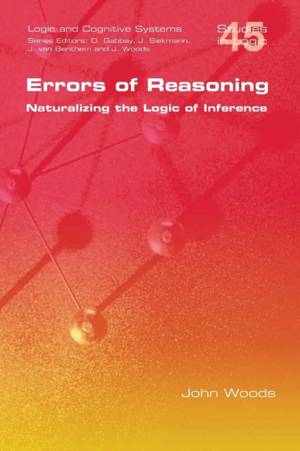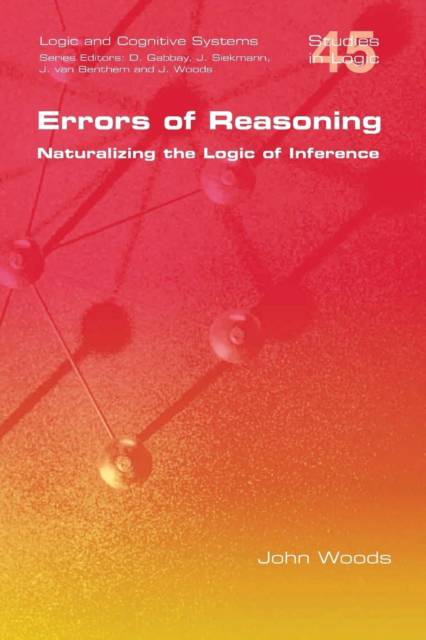
- Afhalen na 1 uur in een winkel met voorraad
- Gratis thuislevering in België vanaf € 30
- Ruim aanbod met 7 miljoen producten
- Afhalen na 1 uur in een winkel met voorraad
- Gratis thuislevering in België vanaf € 30
- Ruim aanbod met 7 miljoen producten
Zoeken
Omschrijving
Errors of Reasoning is the long-awaited continuation of the author's investigation of the logic of cognitive systems. The present focus is the individual human reasoner operating under the conditions and pressures of real life with capacities and resources the natural world makes available to him. The ensuing logic is thus agent-centred, goal-directed, and time-and-action oriented. It is also as psychologically real a logic as consistent with lawlike regularities of the better-developed empirical sciences of cognition. A point of departure for the book is that good reasoning is typically reasoning that does not meet the orthodox logician's requirements of either deductive validity or the sort of inductive strength sought for by the statistico-empirical sciences. A central objective here is to fashion a logic for this "third-way" reasoning. In so doing, substantial refinements are proposed for mainline treatments of nonmonotonic, defeasible, autoepistemic and default reasoning. A further departure from orthodox orientations is the eschewal of all idealizations short of those required for the descriptive adequacy of the relevant parts of empirical science. Also banned is any unearned assumption of a logic's normative authority to judge inferential behaviour as it actually occurs on the ground. The logic that emerges is therefore a naturalized logic, a proposed transformation of orthodox logics in the manner of the naturalization, more than forty years ago, of the traditional approaches to analytic epistemology. A byproduct of the transformation is the abandonment of justification as a general condition of knowledge, especially in third-way contexts. A test case for this new approach is an account of erroneous reasoning, including inferences usually judged fallacious, that outperforms its rivals in theoretical depth and empirical sensitivity. Errors of Reasoning is required reading in all research communities that seek a realistic understanding of human inference: Logic, formal and informal, AI and the other branches of cognitive science, argumentation theory, and theories of legal reasoning. Indeed the book is a standing challenge to all normatively idealized theories of assessable human performance. John Woods is Director of The Abductive Systems Group at the University of British Columbia, and was formerly the Charles S. Peirce Professor of Logic in the Group on Logic and Computation in the Department of Computer Science, King's College London. He is author of Paradox and Paraconsistency (2003) and with Dov Gabbay, of Agenda Relevance (2003) and The Reach of Abduction (2005). His pathbreaking The Logic of Fiction appeared in 1974, with a second edition by College Publications, 2009.
Specificaties
Betrokkenen
- Auteur(s):
- Uitgeverij:
Inhoud
- Aantal bladzijden:
- 620
- Taal:
- Engels
- Reeks:
Eigenschappen
- Productcode (EAN):
- 9781848901148
- Verschijningsdatum:
- 24/07/2013
- Uitvoering:
- Paperback
- Formaat:
- Trade paperback (VS)
- Afmetingen:
- 156 mm x 234 mm
- Gewicht:
- 857 g

Alleen bij Standaard Boekhandel
+ 84 punten op je klantenkaart van Standaard Boekhandel
Beoordelingen
We publiceren alleen reviews die voldoen aan de voorwaarden voor reviews. Bekijk onze voorwaarden voor reviews.








